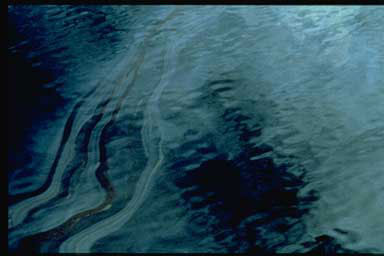Oil Pollution Prevention Act on:
[Wikipedia]
[Google]
[Amazon]
The Oil Pollution Act of 1990 (OPA) (101 H.R.1465, P.L. 101-380) was passed by the
 Laws governing oil spills in the
Laws governing oil spills in the
101st United States Congress
The 101st United States Congress was a meeting of the legislative branch of the United States federal government, composed of the United States Senate and the United States House of Representatives. It met in Washington, DC from January 3, 1989 ...
and signed by President George H. W. Bush. It works to avoid oil spills from vessels and facilities by enforcing removal of spilled oil and assigning liability for the cost of cleanup and damage; requires specific operating procedures; defines responsible parties and financial liability; implements processes for measuring damages; specifies damages for which violators are liable; and establishes a fund for damages, cleanup, and removal costs. This statute has resulted in instrumental changes in the oil production, transportation, and distribution industries.
History/Background
 Laws governing oil spills in the
Laws governing oil spills in the United States
The United States of America (U.S.A. or USA), commonly known as the United States (U.S. or US) or America, is a country Continental United States, primarily located in North America. It consists of 50 U.S. state, states, a Washington, D.C., ...
began in 1851 with the Limitation of Liability Act. This statue, in an attempt to protect the shipping industry, stated that vessel owners were liable for incident-related costs up to the post-incident value of their vessel. The shortcomings of this law were revealed in 1967 with the release of over 100,000 tons of crude oil
Petroleum, also known as crude oil, or simply oil, is a naturally occurring yellowish-black liquid mixture of mainly hydrocarbons, and is found in geological formations. The name ''petroleum'' covers both naturally occurring unprocessed crude ...
into the English Channel
The English Channel, "The Sleeve"; nrf, la Maunche, "The Sleeve" ( Cotentinais) or ( Jèrriais), ( Guernésiais), "The Channel"; br, Mor Breizh, "Sea of Brittany"; cy, Môr Udd, "Lord's Sea"; kw, Mor Bretannek, "British Sea"; nl, Het Ka ...
from the Torrey Canyon
SS ''Torrey Canyon'' was an LR2 Suezmax class oil tanker with a cargo capacity of of crude oil. She ran aground off the western coast of Cornwall, United Kingdom, on 18 March 1967, causing an environmental disaster. At that time she was the ...
. Of the $8 million of cleanup-related costs, the owners of the Torrey Canyon were held liable for only $50—the value of the only remaining Torrey Canyon lifeboat. In the meantime, the Oil Pollution Act of 1924 had passed, but this statue only limited liability for ''deliberate'' discharge of oil into marine waters.
Two years following the Torrey Canyon spill, an oil platform eruption in the Santa Barbara Channel
The Santa Barbara Channel is a portion of the Southern California Bight and separates the mainland of California from the northern Channel Islands. It is generally south of the city of Santa Barbara, and west of the Oxnard Plain in Ventura Cou ...
made national headlines and thrust oil pollution into the public spot light. As a result, in 1970, Congress
A congress is a formal meeting of the representatives of different countries, constituent states, organizations, trade unions, political parties, or other groups. The term originated in Late Middle English to denote an encounter (meeting of ...
placed oil pollution under the authority of the Federal Water Pollution Act (FWPA) of 1965, which later became the Clean Water Act of 1972
The Clean Water Act (CWA) is the primary federal law in the United States governing water pollution. Its objective is to restore and maintain the chemical, physical, and biological integrity of the nation's waters; recognizing the responsibiliti ...
and had previously only covered sewage and Industrial discharge. The FWPA set specific liability limitations. For example, vessels transporting oil were liable only up to $250,000 or $150 per gross ton. These limitations rarely covered the cost of removal and cleanup, let alone damages.
In the decades to follow, several other laws that dealt with oil spill liability and compensation were passed. These statues include: the Ports and Waterways Safety Act of 1972, the Trans-Alaska Pipeline Authorization Act of 1973, the Deep Water Port Act of 1974, the Outer Continental Shelf Lands Act
{{Short pages monitor